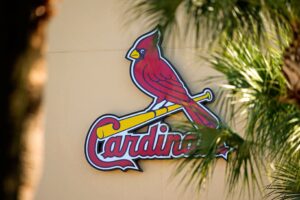
With the World Series on the books for nearly two months, it is time to look back at a few of the more interesting facts about this year’s installment of the Fall Classic.
It turns out the numbers behind the championship meeting between the Houston Astros and Washington Nationals was full of fun stats, odd coincidences, and once-in-a-lifetime occurrences–the kind of stuff we baseball geeks eat up.
It is certainly hard to find a die hard baseball fan who does not like stats.
World Series Economics
When it comes to franchise value the Nationals and Astros are pretty evenly matched. According to Forbes, in 2019 both Houston and Washington franchises are valued at just under $1.8 billion. That’s good for tenth-and-eleventh-place among all MLB teams.
For reference, the New York Yankees take the top spot with a $4.6 billion valuation. The under-performing Miami Marlins bring up the rear with an even $1 billion value.
Interestingly, the Astros and Nationals fielded very comparable payrolls in 2019. Houston players combined to earn $216.8 million in salary while Washington players were paid $227.6 million.
That means Houston paid $2.03 million for each of its 107 regular season wins–a relative bargain versus Washington which shelled out $2.45 million per win for 93 wins.
Underdogs On Top
With the May 2018 overturn of a longstanding Federal freeze on Sports Betting, MLB wagering is gaining traction with baseball fans around the US as more states open betting markets. In fact, domestic sportsbooks with promotions from an exclusive roster of experts are making baseball bets available to many Americans for the first time in 2019.
This year was also the first time in a long time to go in big for the underdog.
The Nationals entered the World Series as the biggest underdogs in more than a decade. Oddsmakers pegged the Astros as -235 favorites in the best-of-seven sequence while listing the Nationals as +195 underdogs.
It was the most lopsided futures seen since 2007 when the Boston Red Sox were favored at -240 to beat the Colorado Rockies.
The outcome of that World Series was just as the odds predicted, and Boston swept Colorado to clinch the Series. The Rockies managed to score just nine total runs as the Red Sox posted 29 runs.
It was a much different story in 2019. The Nationals took the World Series in a battle for the ages with a dramatic 6-2 win in Game 7 at Minute Maid Park.
The improbable championship win gave the Nationals one of the biggest upsets in the Fall Classic’s 116-year history. Anyone betting on Washington to win it all was instantly the hero of the local pub.
So Much for Home Field Advantage
The 2019 World Series marked the sixth consecutive time the championship was clinched by the visiting team. It was the first series where the visiting team won all seven games in any major North American sports league.
Anyone who wagered on the home team in each World Series game, became the laughing stock at the local pub.
The Nationals eight consecutive road wins in the postseason is a NL high-water mark. Three AL teams have also achieved the feat–2004 Red Sox, 2005 Chicago White Sox, and 2014 Kansas City Royals.

Justin Verlander Can’t Win in the World Series
Justin Verlander is one of the best pitchers of his generation. He’s a first-ballot Hall-of-Famer, an eight-time All-Star and, along with teammate Zack Greinke, is one of two active pitchers with over 200 career wins. He won his second Cy Young in 2019 and tossed his third career no-hitter.
Still, he can’t seem to notch a victory in the Fall Classic where he’s a combined 0-6, having started seven games. Despite a 9.2 K/9 in 38 World Series innings, Verlander has a 5.68 ERA. His win probability added in that span is -0.84.






